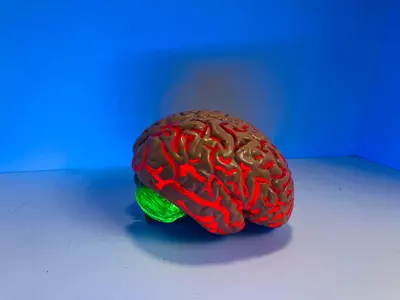The study aimed at leveraging recent breakthroughs in potential dementia blood tests to revolutionize diagnostic practices within the next five years
In a significant stride towards transforming dementia diagnosis, a pioneering research endeavor led by an Indian-origin neurologist based in the UK has received substantial funding this week, news agency PTI reported.
Dr. Ashvini Keshavan, a Senior Clinical Research and Honorary Consultant Neurologist Fellow at University College London (UCL), is at the forefront of a groundbreaking study aimed at leveraging recent breakthroughs in potential dementia blood tests to revolutionize diagnostic practices within the next five years, the report said.
The research team, comprising world-class experts, has secured a major grant to build upon recent advancements in identifying biomarkers for dementia, particularly focusing on Alzheimer’s disease. One of the primary biomarkers under scrutiny is p-tau217, recognized for its potential in Alzheimer’s detection. Collaborating with researchers from the Universities of Oxford and Cambridge, the team is set to explore various proteins to detect a spectrum of dementia-causing conditions.
The initiative, named ADAPT and READ-OUT, spearheaded by UCL, aims to recruit participants from diverse backgrounds across the UK. Dr. Keshavan elucidates, “Proteins indicative of dementia-causing diseases, notably Alzheimer’s, are now discernible in blood. Our objective is to implement these blood tests in real-world settings to enhance diagnostic accuracy, especially for individuals with early dementia or mild cognitive impairments.”
The Blood Biomarker Challenge, a multimillion-pound award, generously supported by organizations such as Alzheimer’s Society, Alzheimer’s Research UK, the UK’s National Institute for Health and Research, and Gates Ventures, underscores the significance of this research endeavor. Dr. Keshavan emphasizes the importance of inclusivity, stating, “Our research aims to reflect the UK’s ethnic and socioeconomic diversity, broadening access to diagnostic tests that are currently inaccessible to most patients due to cost or invasiveness.”
The potential implications of this research are profound. Early diagnosis not only facilitates timely access to care and treatment but also holds the promise of enabling fair and equitable distribution of emerging therapeutic interventions. Professor Jonathan Schott, Chief Medical Officer at Alzheimer’s Research UK, underscores the significance of early diagnosis in paving the way for transformative treatments.
In essence, the collaborative efforts of researchers like Dr. Ashvini Keshavan underscore the transformative potential of blood-based biomarkers in revolutionizing dementia diagnosis. As this pioneering research unfolds, it holds the promise of reshaping diagnostic paradigms, enhancing patient outcomes, and ultimately, fostering hope in the fight against dementia.
Traditionally, dementia diagnosis has relied on memory tests and brain scans, which, while valuable, lack the precision of gold standard tests like PET scans or lumbar punctures. However, these specialized tests remain accessible to only a fraction of patients. The advent of blood tests presents a promising solution, offering a quicker, more cost-effective alternative.
The PTI report quoted Dr Vanessa Raymont, Associate Director at Dementias Platform UK, and Senior Clinical Researcher at the University of Oxford, who stressed the personal significance of this research, having witnessed the impact of dementia firsthand. She affirms the importance of timely and accurate diagnosis in facilitating access to essential support services.
In essence, the collaborative efforts of researchers like Dr. Ashvini Keshavan underscore the transformative potential of blood-based biomarkers in revolutionizing dementia diagnosis. As this pioneering research unfolds, it holds the promise of reshaping diagnostic paradigms, enhancing patient outcomes, and ultimately, fostering hope in the fight against dementia.
***********************************************************************
Readers
These are extraordinary times. All of us have to rely on high-impact, trustworthy journalism. And this is especially true of the Indian Diaspora. Members of the Indian community overseas cannot be fed with inaccurate news.
Pravasi Samwad is a venture that has no shareholders. It is the result of an impassioned initiative of a handful of Indian journalists spread around the world. We have taken a small step forward with the pledge to provide news with accuracy, free from political and commercial influence. Our aim is to keep you, our readers, informed about developments at ‘home’ and across the world that affect you.
Please help us to keep our journalism independent and free.
In these difficult times, running a news website requires finances. While every contribution, big or small, will make a difference, we request our readers to put us in touch with advertisers worldwide. It will be a great help.
For more information: pravasisamwad00@gmail.com



